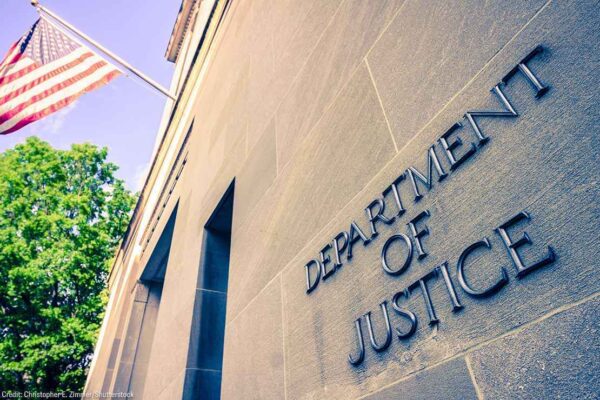NEW ORLEANS — The ACLU of Louisiana and the law firm Wilson Sonsini sent a letter today to the Department of Justice (DOJ) calling for an investigation into the lack of access to counsel within Louisiana’s prison system. Through a series of interviews with local public defenders, the interviewers learned that jails throughout Louisiana are engaged in a widespread practice of denying incarcerated people access to counsel, in alleged violation of the United States Constitution and Louisiana law.
“No person should be required to navigate the criminal legal system without the ability to communicate confidentially with a criminal defense attorney — thwarting this constitutional right is an atrocious and egregious violation that demands action,” said Nora Ahmed, ACLU of Louisiana Legal Director. “That this practice appears routine at multiple jails is astounding. In our letter to the DOJ, we provide a non-exhaustive list of how incarcerated people’s right to counsel is being denied at multiple facilities. We urge the Department, as part of its ongoing investigation into the Louisiana Department of Public Safety and Corrections, to investigate these harmful practices immediately, and, if warranted, pursue civil action against all facilities actively thwarting incarcerated people’s right to counsel.”
Both the United States Constitution and Louisiana law require prison personnel to allow incarcerated people reasonable access to private consultation with attorneys. However, Louisiana prisons appear to have extensive practices that deny or gravely interfere with incarcerated persons’ constitutional right to counsel, resulting in grievous harm. The letter outlines in great detail the alleged protocol of outright denying private meeting spaces to attorneys, housing incarcerated individuals at prohibitive distance from their counsel, listening to and/or recording attorney-client correspondence, and opening privileged mail. These problems, compounded by issues of underfunding, high caseloads, and an alleged widespread culture of bias against public defenders, erode confidence in the justice system and undermine the fundamental tenets of the attorney-client relationship.
“We believe that every person in the United States who stands accused of a crime should be able to equally exercise the fundamental right to counsel,” said Wilson Sonsini Partner and former Utah Supreme Court Justice Deno Himonas. “We are thankful to assist the ACLU of Louisiana on a pro bono basis to bring these issues to light in pursuit of justice for all,” Wilson Sonsini Pro Bono Partner Luke Liss added.
The DOJ is uniquely positioned to remedy these constitutional violations within Louisiana state prisons under the Civil Rights of Institutionalized Persons Act (CRIPA), which gives the Special Litigation Section of the U.S. Department of Justice Civil Rights Division the federal statutory authority to investigate conditions and practices in state-run institutions that deprive individuals housed in those institutions of their constitutional rights. Indeed, DOJ has already initiated an investigation of the Louisiana Department of Public Safety and Corrections’ policies and practices as it relates to prisoner release practices in December of 2020. The alleged violations recounted in today’s letter directly relate to the very same institutions' practices.
Signed supporters of the letter include Voice of the Experienced (V.O.T.E.), Voters Organized to Educate, Promise of Justice Initiative, Southern Poverty Law Center, East Baton Rouge Parish Prison Reform Coalition, Orleans Public Defenders, and Operation Restoration.
Additionally, the ACLU and Wilson Sonsini are sending letters to all the jails identified in the letter to the DOJ in the hope that those facilities will voluntarily cease any misconduct immediately. The organizations hope that publicly announcing the results of the investigation will encourage any other violators to cease and desist such practices forthwith.
###
Stay Informed
Sign up to be the first to hear about how to take action.
By completing this form, I agree to receive occasional emails per the terms of the ACLU’s privacy statement.
By completing this form, I agree to receive occasional emails per the terms of the ACLU’s privacy statement.

